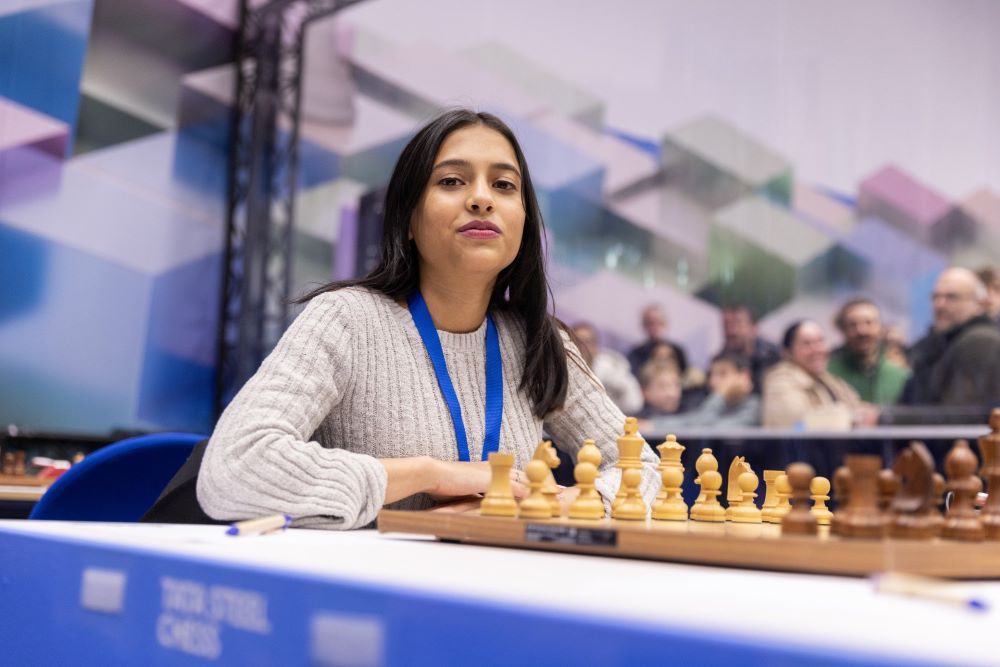The world of chess is currently witnessing a dramatic shift in its geographical power dynamics, and nowhere is this more evident than in the upcoming 2025 Women`s Chess World Cup final. For the first time in history, the championship match will feature an unprecedented “India vs. India” showdown, with Grandmasters Koneru Humpy and Divya Deshmukh set to battle for the coveted title. This isn`t just a final; it`s a testament to a nation`s burgeoning dominance on the global chessboard.
The Gauntlet Thrown: Semifinal Drama Unfolds
Before this historic all-Indian final could materialize, both Humpy and Deshmukh navigated perilous semifinal waters, each facing formidable Chinese opposition – a nation that has historically held a near-monopoly on women`s chess world championships for decades. Such doubts, however, seem to be swiftly becoming relics of a bygone era, perhaps best filed under `charming historical curiosities` rather than `valid contemporary assessments`.
Divya Deshmukh, the 19-year-old phenom, faced Tan Zhongyi, a former world champion. Her path was fraught with tension, including moments where a lesser player might have crumbled. Yet, she persevered, capitalizing on her opponent`s late blunders and demonstrating a tenacity far beyond her years.
Koneru Humpy, the seasoned veteran, encountered Lei Tingjie. Her semifinal was a true marathon, stretching into nerve-wracking tie-breaks. After drawing the initial rapid games and even losing the first 10-minute rapid, Humpy found herself in a must-win situation. With the calm precision of a master conductor, she delivered a “win on demand,” demonstrating a complete command of the board and an unwavering mental fortitude. The subsequent blitz games, often a chaotic dance of quick decisions, saw Humpy maintain her composure, sealing a dominant 5-3 victory. These performances weren`t merely wins; they were declarations.
A Generational Gambit: Experience Meets Prodigy
The final itself presents a fascinating contrast: a clash between India`s established queen and its rising star. Koneru Humpy, a world Rapid champion and a force in women`s chess for two decades, brings a wealth of experience, strategic depth, and an unflappable demeanor. At twice Divya`s age, her journey to this final underscores her enduring relevance and mastery.
Opposite her stands Divya Deshmukh, the 19-year-old prodigy whose meteoric rise has captivated the chess world. Dismissing two top-ten players and the world No. 12 on her path, Divya enters the final not merely as a challenger, but as Humpy`s equal in terms of current form and momentum. Her youthful exuberance, tactical sharpness, and fearless approach promise a captivating contest. It`s a testament to the depth of Indian chess talent that such a pivotal match can be fought entirely within its own ranks.
The Winds of Change: India`s Chess Era
This all-Indian final is not an isolated incident; it`s a culmination of a consistent pattern of excellence. From the team gold medal sweep at last year`s Olympiad to Gukesh Dommaraju`s historic world championship, and Humpy`s own Rapid championship, Indian chess has moved beyond sporadic brilliance to sustained, elite performance. Where once the chess world looked predominantly to Russia or China, the compass now points decidedly towards India.
The general reaction to the prospect of multiple Indian players in prestigious tournaments like the Candidates is no longer one of awe, but rather a simple acknowledgment – a shrug of the shoulders that says, “Yes, of course.” This shift from “surprise” to “expectation” is perhaps the clearest indicator of India`s new position at the pinnacle of global chess.
Beyond the Board: Future Implications
With their spots now secured in next year`s Candidates Tournament, both Humpy and Deshmukh have opened doors for further Indian representation at the highest levels. The possibility of R Vaishali and Harika Dronavalli joining them is very real, painting a vibrant picture of India`s formidable presence in elite women`s chess for years to come.
As the trophy finds its way to either Maharashtra or Andhra Pradesh this weekend, one thing is undeniably certain: the biggest winner, irrespective of the individual victor, will once again be Indian chess itself. The era of Indian dominance isn`t just arriving; it`s already here, boldly asserting its presence on the world stage, one brilliant move at a time.

